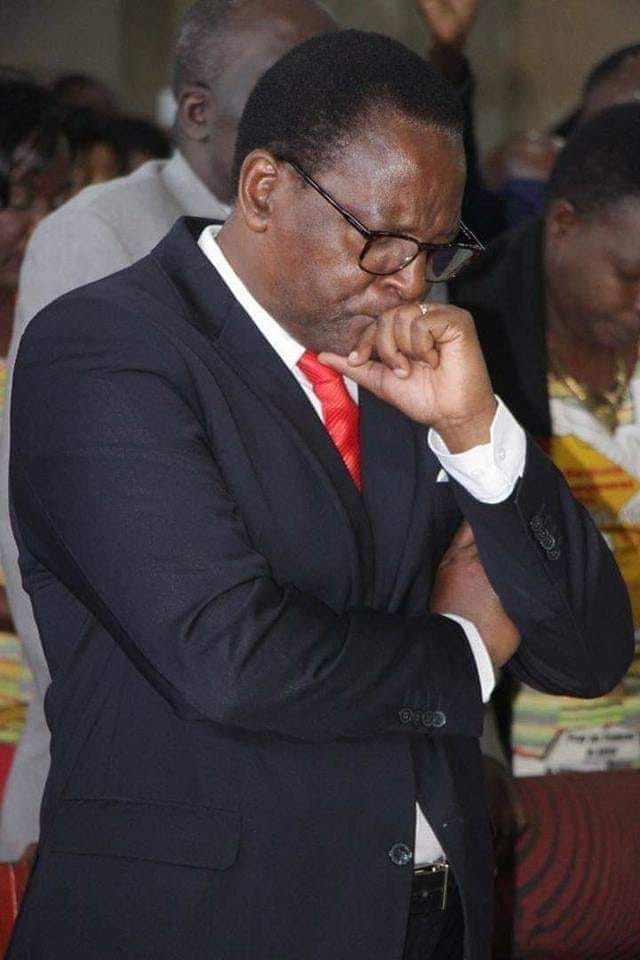BY LIMBANI NSAPATO

The final Electoral Commission results from the June 23 fresh presidential elections held in Malawi show that 2,604,300 voters, representing 59.33% of the 4,389,303 valid votes, chose Dr. Lazarus Chakwera of Malawi Congress Party (MCP) and leader of the MCP/UTM – led Tonse Alliance as President of the Republic. On the other hand, 1,752,530 voters (39.93%) rejected the Tonse Alliance torchbearer and instead voted for Prof. Arthur Peter Mutharika of Democratic Progressive Party (DPP) and leader of DPP/UDF Alliance. The Tonse Alliance undertook a formidable campaign which won majority votes which led Dr. Chakwera to claim the Presidency. However, nearly 2 million voters rejected the Tonse Alliance. What could have been the reasons? There could be many reasons why. However, as someone who likes to comment about the right to education, I restrict myself to discussing some of the possible educational reasons as to why 40% of the voters did not chose Dr. Chakwera and suggest what could be done to win their hearts during the 5 years in office.
Firstly, what could have won the hearts of the voters in education?
A review of campaign promises of MCP and UTM point to some great ideas for improving education:
1. Expanding access to pre-primary schools by encouraging private sector and religious community. Early Childhood Development to be a prerequisite for primary school enrollment.
2. Enforcing legislation making primary school education compulsory
3. Promoting free secondary education
4. Providing materials/inputs in schools such as desk for every child, textbooks, teachers, free sanitary pads for girls, and ensuing electricity for all schools
5. Improving conditions for teachers (remuneration) in primary, secondary and tertiary education institutions
6. Abolishing quota system in secondary and tertiary education levels and replacing it with merit system
7. University education promises – curriculum review to make it relent, expanding university infrastructure to increase intake, providing electronic libraries for universities, and investing in university research, science and technology.
8. Youth skills development and technical, entrepreneurial, vocational education and training.
9. Cushioning disadvantaged/needy students: 100% bursaries for secondary & loans for university
10. Re-introduce physical education & competitive sports
Secondly, why did nearly 2 million voters reject the Tonse Alliance?
1) The campaign did not have plans for youth and adult education, teacher education and complementary education for out- of- school children.
2) The campaign left preschool investment to the private and religious sector. Without public commitment and investment, poor children will not afford pre-school which is expected to be a precondition for primary education.
3) While quota system has already been abolished by the DPP regime, the MCP/UTM campaign did not come up with strategies to address underlying factors that cause inequalities in access to resources in schools which led to introduction of quota. Merit-based systems should be based on level playing ground.
4) No strategy for improving quality in community day secondary schools (CDSS) which cater for over 60% of secondary enrollment
5) The campaign failed to come up with strategy to mainstream inclusion of people with disabilities majority of whom can’t access education at all levels due to lack of disability friendly resources.
6) The campaign plans did not have targeted numbers and timelines thereby raising questions about realism and accountability.
7) The campaign offered no strategy for enhancing governance and management of the education sector: lack of strategy for ensuring transparency, citizen involvement in decision making, and tackling internal inefficiencies of repetition and high dropouts.
8) Given that education is a resource- based sector, the campaign did not eke out any strategy for sustainably financing education despite promising massive expansion programs for preschool, primary, secondary and tertiary.
9) No plan on how to address the COVID 19 pandemic in the education sector.
Going Forward, what can be done?
Rev. Dr. Chakwera’s government with expertise from the Ministry of Education should review the campaign promises, address missing gaps and implement a fully-fledged strategy for education for the next five years. Of course, Dr Chakwera is not bound by this recommendation, but it’s worthy to consider the views of the nearly 2 million voters who rejected him. This could be in sync with the message of the swearing in ceremony in which the President extended an olive branch to those who did not vote him, promising there is room for them also in the new government.


ife one state ayi. komanso this is not the true reflection of things on the ground. the playing field was not levelled. most elligible voters were intimidated and harrassed by utm and mcp supporters. the polls were marred with abductions and beatings of dpp supporters. those harrassed in 2019 dared not to vote and i doubt if they will ever vote again. our judiciary betrayed us and landed us in the hands of the government of their choice.
kulila kumeneko simunat anthu oyipa mitima inu dyela basi ndi kuwononga chuma cha boma ,if i were a president i would have just abolish what we call a party of thieves dpp
Ma cadet zilirani mmene mungalilire DPP ifa mmawa. Inuyo mudikilire zaka 30